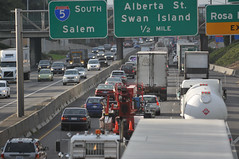
transportation systems,” says Car and Driver.
(Photo © J. Maus)
Car and Driver Magazine, one of America’s most respected automobile enthusiast publications with a circulation of 1.3 million, published an investigative report in their July issue titled, The State of the Union’s Roads: What’s happening to our playground? The American highway is broken. And broke.
The report details the bleak financial picture that states find themselves in as Washington tries to figure out how to move our country’s transportation investments forward. It’s an engaging read and includes good context for the national transportation spending debate.
“… the America it [the Interstate Highway System] was built for no longer exists.”
While I was prepared for a screed about how “bike paths” and other silly things (sarcasm intended) were depleting the highway fund and taking away the precious “playground” of automobiles, I instead found that the car magazine I read as a boy and that has catered to car lovers for 50 years — came to the conclusion that perhaps simply building more roads and maintaining all existing ones is futile.
Check out this excerpt (emphasis mine):
The inevitable conclusion is that we cannot possibly build enough roads to satisfy demand, so we must consider alternative transportation systems.
The Interstate Highway System was built to get manufactured goods and agricultural products to market and to get long-range travelers from metropolis to metropolis. It fulfills these roles, but the America it was built for no longer exists. … With a vast majority of Americans living and working in urban areas, why not adjust [funding] formulas to account for the new population distribution?
… we need to take a hard look at what role highways should play and how they fit into the broader transportation network. Sprawling car-centric cities like Los Angeles, Phoenix, Salt Lake City, and Dallas are rushing to build new mass-transit systems—they have to; the roads they have cannot satisfy demand. So they must harmonize with other modes of transportation to reduce the stress on existing roadways as much as possible.
An expert with the Texas Transportation Institute had the last word:
…“We want to make sure we get the biggest bang for the buck. What kind of transportation investments allow us to do that, as opposed to just being able to sit there and say, ‘Well, we’ve got X dollars. Let’s go out and repave a bunch of roads.’ Well, we don’t have that luxury. We don’t have it in Texas, and I doubt if we have it in any state.”
This sounds to me like fresh thinking from a very unexpected place. The article also goes against the ideas in the U.S. House transportation proposal released by Rep. John Mica earlier this month. Most experts read Mica’s plan as an attempt to strip funding for everything but traditional highway projects.
One car magazine isn’t likely to influence the national debate; but it certainly shows that the unsustainable expense alone is proving enough for many people — including those far beyond active transportation advocacy circles — to question our auto-centric status quo.
Read the full article here.



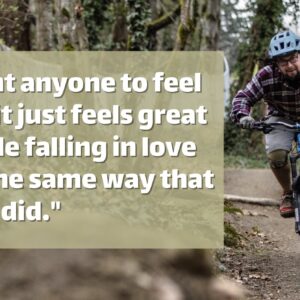
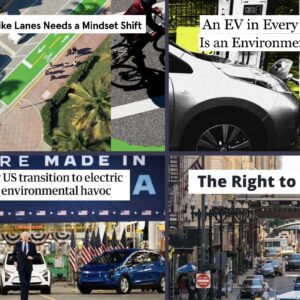
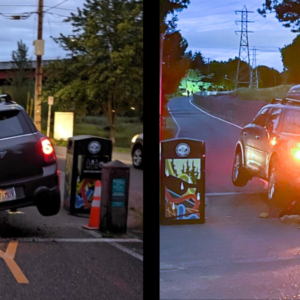
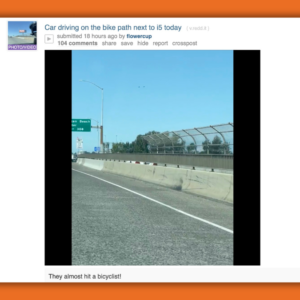
Thanks for reading.
BikePortland has served this community with independent community journalism since 2005. We rely on subscriptions from readers like you to survive. Your financial support is vital in keeping this valuable resource alive and well.
Please subscribe today to strengthen and expand our work.
Sometimes the change is already happening under our noses. Thanks for discovering and highlighting this, Jonathan.
And before you know it physical constraints like peak oil and climate change will get added to the mix and we’ll be off and running in a productive direction!
I just read the Car and Driver article. This was to me the funny part: “Raise the gas tax temporarily and use the time that buys to transition to something better.” Note the word ‘temporarily.’ Nowhere in the rest of the article did I find any justification–on the terms the article itself sets–for thinking that any of these problems would be fixed by making any ‘temporary’ change. This is a systemic problem and quite apart from energy and climate constraints, the idea that a temporary tax would ‘fix’ all of this is really quite absurd.
Once again the most obvious solution: phase out our reliance on cars is overlooked. I believe it is already happening: “According to a December 2, 2004 Los Angeles Times article, only 43% of American 15-, 16-, and 17-year-olds had licenses in 2002.[29] By comparison, the percentage in 1982 was 52%”
http://en.wikipedia.org/wiki/Driver%27s_license_in_the_United_States
Interesting to see Car and Driver produce such compelling arguments against urban freeway expansions like the CRC and the I-5 Broadway/Weidler interchange.
More from the article:
And for some reason I can’t help but think of this old Onion article: “Report: 98 Percent Of U.S. Commuters Favor Public Transportation For Others” http://onion.com/qVCsor
🙂
Great quote, Spencer. The CRC reminds me of the Juggernaut character in the X-Men: once he gains momentum he’s unstoppable. It seems like regardless of what facts are presented, it will not slow down. I don’t get it.
This is an interesting tidbit – “Over the past few years, legislators injected money into the HTF from the general fund, $47 billion in total…”
But cyclists are the *real* freeloaders of course.
In normal times, this article would be merely rational and reasonable. In today’s political climate, it seems bold and refreshing(*). I hope John Mica reads it.
-J
(* compared to, for instance, this absurd infotorial from the Heritage Foundation, via our Oregonian: http://www.oregonlive.com/opinion/index.ssf/2011/07/a_poor_definition_of_poverty.html)
I thought I’d take a quick peak at BikePortland before going for a ride…then followed your link to the piece on poverty from the ministry of propaganda and the 84 comments…very interesting – thanks for posting it, but really it’s too nice a day to sit inside reading on line posts &/or responding to them….that’s what night time is good for.
Now I’ll go finish installing my new (made in SE Portland by Terra Cycle) underseat rack on my recumbent so I can go touring.
+1 on your comment btw
Thanks Roger. Sorry about the link: somehow I got the close perentheses included in the hyperlink, so it goes nowhere unless you copy/paste –but sounds like you figured it out.
I was a C&D sub years ago. This article doesn’t particularly surprise me. C&D always had the most strongly common-sensical & philosophically libertarian editorial board of any non-overtly political mag I’ve ever read.
There was a time when Cars were the alternative mode.
Much like Oppenheimer, I can’t help wonder if the inventors of the automobile would be so proud of how perverted the model has become.
I can’t wait to see miles of well planned single track connecting communities. The future may not be little flying cars but rather people powered mobiles.
Yeah, forget the subjunctive. The future will certainly not involve flying cars and almost as certainly will rely far more heavily on human powered locomotion than we do today (in Portland).
I really think the whole “cars vs. bikes” way of framing the issue is incorrect. I love bikes as much as everyone else who reads this website, but I also realize that there are those for whom bicycle riding and commuting isn’t a feasible option. When considering the future of transportation for this country, we should be asking, “how can we continue improve our road infrastructure, while also accommodating people who utilize alternative means of transportation”. I’ve noticed the CRC project takes a lot of flak. In my opinion that project is something which is truly necessary. On the other hand, that doesn’t mean all freeway expansion is. I don’t think we should be forcing people onto bikes by not expanding roads, but I also don’t think we should be forcing people into cars by not accommodating bikes…On a side note, as someone who works in politics, the “politicization” of bike riding frustrates me. I ride bikes to get away from politics and if people would just use common sense it wouldn’t even be necessary.
“I don’t think we should be forcing people onto bikes by not expanding roads”
where does this language of ‘forcing’ always come from?!Internal combustion engines, fossil fuels, private automobiles don’t have a very certain future, not because I don’t like them, or because anyone is trying to force anything, but because we’re running out of the cheap stuff and out of stable climate. The prudent course of action in light of these looming changes, as many European countries are discovering, is to stop subsidizing cars and related infrastructure and shift our infrastructure attention and funds to modes that don’t require fossil fuels.
As for folks not being a ‘feasible option’ for many people, exactly how do we know this? What exactly makes it infeasible? And how many of those hurdles can or could or will be overcome once we stop pretending that ‘everything’s going to be fine’?
Who says cars of the future will necessarily be powered by fossil fuels? Technology allowing us to move away from internal combustion is constantly improving. As for whom bicycle commuting is unfeasible…a variety of people as well as businesses. How about working parents, disabled, elderly, and those who live outside of cities just to start? Furthermore, I’m not “pretending everything is fine”. I’m saying we need to be open minded when planning for the future.
“I don’t think we should be forcing people onto bikes by not expanding roads”
Even though we are already forcing people into cars by not expanding alternative transportation options?
Do you realize that the first new bridge over the Willamette in 40 years will NOT allow cars. Its specifically for the new Milwaukee LR, the streetcar, pedestrians, and cyclists. We’re spending 1.4 BILLION on the project. You cannot tell me with a straight face we aren’t expanding alternative transportation options, especially not in this city.
“The CRC” is one very narrow vision of how to develop the I-5 freeway near the Columbia River. I agree that the area needs attention but there are other, better options which have, so far, been ignored by the powers that be. Some of those ideas address not only your “how can we continue to improve roads…” question, but also how we can fund that, how roads can be diversified to better serve more people for a longer time into the future and how roads can be integrated to serve the bigger picture of how we develop all of our resources, from human-scale to cities to open space.
I am actually a big supporter of the common sense alternative, although I would replace light rail with bus rapid transit, which has proven to be far less expensive and more efficient than trains.
I of course meant bikes – ‘as for bikes not being a feasible option…’
sorry about that.
Having subscribed to C&D for 30 years, I’ve enjoyed the automotive writing, but always been frustrated by their libertarian-leaning editorial positions — though they’ve at least been fairly supportive of increased gas taxes in the past.
This is a real breakthrough, and I’m glad to hear of it.
C&D has taken some pretty surprisingly GOOD editorial positions. I subscribed for a few years when I neither drove nor owned a car–because they ran an editorial by either David E. Davis or Pat Bedard (don’t remember which) calling for the death penalty for DUI.
I knew then, driver or not, it was my kind of magazine!
Infrastructure is a mess and will get worse since our country is broke, there is no way around this now. But bikes are not the answer. That would be like saying horses are the answer.
The article doesn’t even mention bicycles. It makes a case that building more roads doesn’t relieve congestion but investment in alternative transportation does.
Bicycles are part of the solution, which is why so many cities are investing in relatively cheap infrastructure to encourage cycling and accommodate increasing numbers of cyclists.